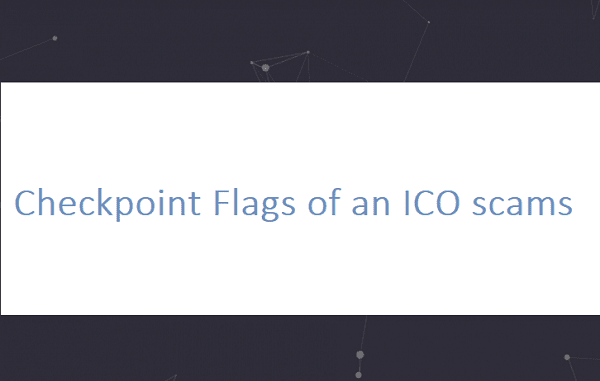Contents
ICOs have opened up several paths for the public to venture blockchain technology. In the past couple of years, ICOs have been the primary sources of capital for raising funds for blockchain-based startups. It has raised a record-breaking $1.7 billion in 2017.
At the time in 2107, there were around 200 ICOs, and conducting all the procedures with diligence was time-consuming. Even a specialist finds it difficult with the systems. It is due to the reason because Blockchain technology is still a new concept, and there are still areas that need to venture.
However, there have been many scams in the ICOs industry. It is caused due to a lack of study infrastructure and a lax regulatory framework. It has made the ICOs a thorn in the eyes of investors and traders. However, if you want, you can save guard yourself from being scammed with the ICOs’ investment.
In this article, I will highlight the facts and the red flags that you must look for in any ICOs investment. Once you can identify these red flags, you will be able to distinguish which ICOs investment is real and fake.
Use case does not require blockchain
Not every project needs to be related to blockchain technology; the startups can be to other technologies. But with the hype that the blockchain technology and the cryptocurrencies have created in the market. People think that the ICOs are always related to blockchain and cryptocurrencies.
Not only the investment, but you can even make payments with the help of the Cryptocurrencies. While handling ICOs, the first question that you might consider asking yourself is that don’t you need a blockchain network or a native token. The answer is “No” to both. There are chances that the ICO project is just a solution for Cryptocurrencies scam.
Empty repositories for open source projects
If you are coming across an ICOs project that is proposing open-source code, you can rest assured t5hat it is not a scan. One of the basic principles of a scam is that it hides information from the clients. When you are part of a project, it is essential to have crystal-clear knowledge about it. And if you find that information is being hidden from, then that is the red flag that signifies a possible scam.
Mining structure favors development team
Mining might not be the correct litmus to check whether the project is real or fake, but you can use it to cross-check the data and information of the projects to validate that it is authenticated or not. In simpler terms, there is a pre-mine kept for the small groups before it can be made public.
But if you see that the pre-mine amount is higher than usual, you can consider them a red flag. For instance, an incident where the founder of the Pay coin kept more than $9million of the token reserved for the developers was charged guilty.
Anonym teams
Understanding the kind of team performing behind the scheme is very important. If you have no idea who the team member is and what they specialize in might be considered keeping you in the dark. You are a client, and you believe the team to maintain a secure network for the ICOs. That means you have full authority to have every information. If this information is being hidden from you, there is no team at all or a weak team that does not have any prior experience.
Insufficient information on the website
When you feel like it is a scam, then it probably is. When you are not sure of the project’s authenticity, it is better to turn on your caution switch to be on a safe side. You might find that the website is incomplete or lacks the necessary information or has unbelievable numbers to boast. In that case, it is vital to take every step cautiously.
There have been cases that the website is both a scam and legit. It all depends on the kind of use it gets. If the user is smart, the site treats them as a client, and if the users have no idea what they are doing, they are scammed.
If you are looking for a legit website to invest in Cryptocurrencies and ICOs, you might consider looking for more information about How to Work with Bitcoin?





